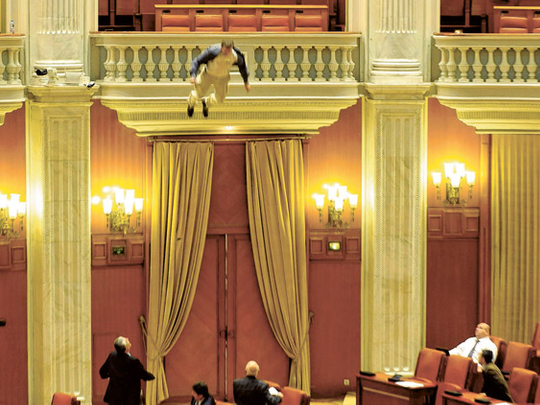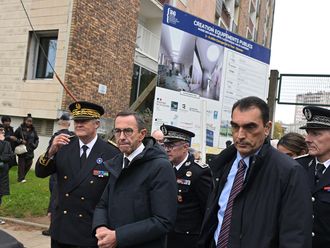
Bucharest: Romania's government survived a no-confidence vote over IMF-backed wage reforms as expected yesterday, paving the way for the country to receive fresh loans in January and subsequently strike a new aid deal.
Opposition legislators, who do not have a majority in parliament, decided to abstain from voting after a man jumped from a balcony in the hall. He was protesting the government's austerity drive, which includes wage cuts and tax hikes.
Prime Minister Emil Boc has survived four no-confidence motions this year, allowing his fragile coalition to push ahead with painful reforms to keep a €20 billion (Dh98 billion) bailout, key to maintain investor trust and lift the economy out of recession.
"The government survived this motion. There were 247 parliament members present, but no one cast a ballot," Dumitru Pardau, a member of the counting committee said. Debates were briefly suspended after the man, a public television employee, made his protest plunge.
State news agency Agerpres said the father of two in his forties was seriously injured. He was wearing a shirt with the words: "You killed our children's future, you sold us".
Analysts say the incident showed mounting popular discontent in Romania, the European Union's second poorest member, and opposition to International Monetary Fund-backed cost-cutting measures it says are needed to rein in a vast fiscal gap.
It signals that Boc may still struggle to push through more reforms next year, required to begin talks on a new aid deal once the current one expires in March.
Like troubled Greece which has implemented stringent measures, Romania has already cut public sector wages by about 25 per cent, increased the retirement age, frozen pensions and hiked value added tax to one of the highest levels in the EU.












